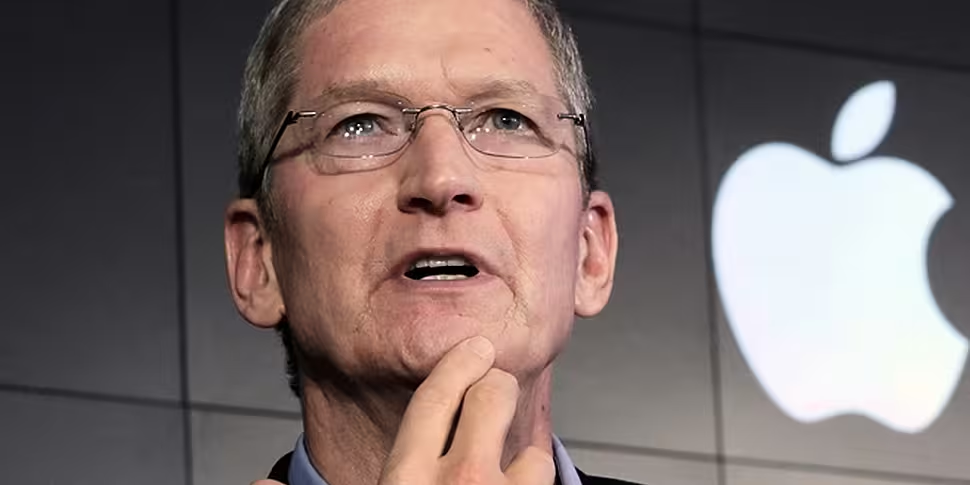NSA whistleblower Edward Snowden has taken to Twitter in the wake of the FBI's unblocking of the iPhone 5c used by the San Bernardino shooter to renew his claims that the organisation always had the technical capability to access content saved on the phone without Apple's help.
"The FBI says Apple has the 'exclusive technical means' to unlock the phone. Respectfully, that’s bullshit," he told a 'pro-democracy' conference in Washington DC earlier in this month via video link from Moscow, where the 32-year-old has been granted asylum.
Techs are so angry about the dishonesty in this case that @FBI might need to add itself to the list of radicalizers. #AppleVsFBI
— Edward Snowden (@Snowden) March 28, 2016
Apple representatives have previously said that if the phone is unlocked by the FBI it would request to be issued details of the procedures used to access its device. However, the US government can retain details of how it bypassed Apple's security features as classified information.

Julie Jacobson / AP/Press Association Images / New York police officers stand outside the Apple Store on Fifth Avenue while monitoring a demonstration
The row between Apple and the FBI has centered on a feature which deletes data from iPhones after the access code has been entered incorrectly more than five times.
Mr Snowden previously cited a paper by Daniel Kahn Gillmor, a technology fellow at the American Civil Liberties Union (ACLU), which argued that the FBI has means of backing up the phone before attempting to find the security code.

US Justice Department's two paragraph filing announcing that the phone had been unlocked and that the case against Apple had been dropped.
"The FBI wants us to think that this case is about a single phone, used by a terrorist," Mr Gillmor wrote, "but it's a power grab: law enforcement has dozens of other cases where they would love to be able to compel software and hardware providers to build, provide and vouch for deliberately weakened code".
The US Justice Department testified that it was unable to unlock the iPhone without Apple's cooperation, and this was the basis of its case to legally compel the Californian firm to unlock the device.
Remember when government officials used to lose their jobs for false testimony? First Clapper, now Comey. https://t.co/X204QZBKOz
— Edward Snowden (@Snowden) March 28, 2016
In light of the phone's unlocking without the help of Apple, Mr Snowden has questioned the sincerity of this testimony.
During the impasse, CEO Tim Cook gave an in-depth interview to David Muir of ABC News, echoing those thoughts in more measured language, suggesting that what was being demanded of the company was setting a dangerous precedent, given neither the FBI or Apple actually knew if there was any further information even on the device.
"This case is about the future", said Cook. "What is at stake here is can the government compel Apple to write software that we believe would make hundreds of millions of customers vulnerable around the world, including the US, and also trample civil liberties that are at the basic foundation of what this country was made on?"
"If a court can ask us to write this piece of software," he added "think about what else they could ask us to write. Maybe it's an operating system for surveillance. Maybe it's the ability for law enforcement to turn on the camera. I don't know where this stops".
A statement from Apple in light of the ruling has also expressed concerns over the validity of the FBI's original attempts to force the company to comply with the court order:
"From the beginning, we objected to the FBI’s demand that Apple build a backdoor into the iPhone because we believed it was wrong and would set a dangerous precedent. As a result of the government’s dismissal, neither of these occurred. This case should never have been brought."
The statement continues, "We will continue to help law enforcement with their investigations, as we have done all along, and we will continue to increase the security of our products as the threats and attacks on our data become more frequent and more sophisticated. Apple believes deeply that people in the United States and around the world deserve data protection, security and privacy. Sacrificing one for the other only puts people and countries at greater risk.
"This case raised issues which deserve a national conversation about our civil liberties, and our collective security and privacy. Apple remains committed to participating in that discussion."
In the end, as Snowden noted, this has been a big win for Apple (of sorts) that the company should use to promote how much they value privacy.
If I'm Tim Cook, the next #Apple keynote sends a message even the @FBI won't have trouble decrypting. "iPhone works for you, and you alone."
— Edward Snowden (@Snowden) 28 March 2016
Despite that obvious PR coup, Cook is unlikely to take Snowden's advice, given he told Muir that "I know people like to frame this argument as privacy versus national security. That is overly simplistic and it is not true".
The real effect may be that as people become more conscious of their data and its value, the FBI has given the public, as The Wall Street Journal puts it "more reasons to doubt their credibility and even basic competence".









